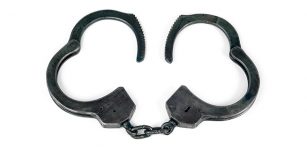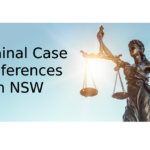Getting Criminal Charges Dropped

Criminal Lawyers are often criticised for adjourning cases from court-date to court-date until they reach ‘defended hearings’ or ‘jury trials’, while doing very little in between to get charges ‘dropped’.
This is not only bad practice; it can be a breach of a lawyer’s duty to act in the client’s best interest.
Fighting hard for charges to be withdrawn at an early stage is important because it results in a satisfied client, positive reviews, word of mouth referrals and a good long term reputation. It also feels great!
For the client, you have relieved the prolonged stress and mental anguish of a ‘defended hearing’ or ‘jury trial’ – win, lose or draw; not to mention the financial cost.
The following is a basic 5-step guide to getting criminal charges dropped. It can be applied to minor charges such as small drug supplies or assault, all the way to strictly indictable cases such as aggravated sexual assault and murder.
1. Get the prosecution materials early!
On the first court date, police will be ordered to serve the ‘police brief’ (all statements and materials) within a certain time period, usually 4 or 5 weeks.
However, police often fail to do this in time which can result in adjournment after adjournment – at great mental and financial cost to the client.
It is good practice to file and serve a ‘Subpoena for Production’ upon police at an early stage; even before the first court date.
The material requested should be broader than that which are ordinarily served in the ‘police brief’; comprising not only all statements, colour photos, notebook entries etc, but also materials such as ‘COPS’ entries, letters to and from forensic labs and experts, criminal antecedents of any alleged victims or witnesses etc.
This procedure will pressure police to serve the materials early.
The subpoena should be served by express post upon the ‘NSW Police Service’ and by fax upon the Officer in Charge. The Officer in Charge should then be contacted directly to ensure compliance.
Additional subpoenae can be served upon other relevant bodies e.g. Justice Health, the Division of Analytical Laboratories (‘DAL’), Corrective Services etc and, if relevant, ‘Authorities to Uplift’ should be taken from the client and served upon any medical practitioners.
2. Carefully read and make detailed notes of all materials obtained
Carefully read all the materials bearing in mind the essential elements of each charge. Highlight any inconsistencies, deficiencies, credibility issues e.g. recent invention, delay etc and, most importantly, prepare:
(1) detailed notes regarding the issues raised,
(2) questions for your client, and
(3) a ‘to do list’ of matters requiring attention, eg any request for further particulars or materials from prosecution, list of further subpoenae to be issued etc.
3. Obtain client instructions, including a ‘proof of evidence’
Ask your client to read relevant parts of the brief; particularly the complainant’s (ie alleged victim’s) statement, any eye-witness statements etc and to take notes of anything that is not right, and to write down what actually occurred.
Then have a conference and take a detailed ‘proof of evidence’ (ie statement).
4. Draft detailed Representations
‘Representations’ are a document requesting the withdrawal of charges.
The problem is that most criminal lawyers draft very short Representations; 2-3 pages long, which have little chance of success.
the better way is to draft detailed Representations which are structured, persuasive and contain the ‘meat’ required for the Officer in Charge (or the DPP solicitor) to draft their own report to their superior for the withdrawal.
In police matters, the Officer in Charge will draft a report to the Local Area Commander while in DPP matters the solicitor with carriage will draft a report to the Director.
My Representations are typically between 15 and 80 pages long, plus any annexures (eg case-law, reports etc).
A recent manslaughter case contained 83 page representations, which the DPP solicitor quoted from when drafting his report to the Director (ie to his superior).
This led to withdrawal of the case.
Representations should be structured and normally contain the following headings:
1. Charges
This part should contain an outline of the charges brought, any relevant ‘Tables’ (eg SI, T1 or T2), the maximum penalties, any standard non-parole periods etc.
2Police ‘facts’
. This part outlines the basic allegations.
3. Applicable Law
This part may be before or after the next heading, depending on the case.
It should list the essential elements of each offence and outline the relevant authorities.
4. Prosecution Evidence
This part goes through the relevant materials in the prosecution brief.
It is usually the most substantial part of the document.
5.Prosecution Policies and Guidelines
DPP policies and guidelines are published on the DPP website.
They include the rule that a charge is to be withdrawn if the ‘admissible evidence available’ fails to prove any essential element thereof.
There are a range of other policies and guidelines which may be relevant to any particular case and should be brought to the prosecution’s attention.
And lastly but most importantly,
6. Defences Submissions
This may contain sub-headings and such as ‘Charge 1 – lack of identification’ etc and should contain persuasive arguments based upon the ‘admissible evidence available’ (or lack thereof) for the withdrawal of charges.
5. Push for withdrawal!
The Officer in Charge or DPP Solicitor should be contacted a reasonable time after submitting the Representations (eg 2 weeks or so).
You will find that DPP solicitors are often happy to sit down and talk the issues through at a ‘case conference’.
If you are able to mount a persuasive argument, the prosecution will often discontinue proceedings altogether or, at least, reduce the number and/or seriousness of the charges, and/or significantly amend the ‘agreed facts’.
The client is happy, you are happy, you get positive reviews and client referrals!
This is far better than the short term financial benefits of a ‘defended hearing’ or ‘jury trial’.






